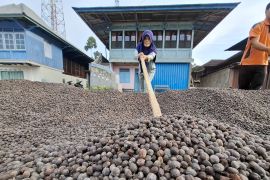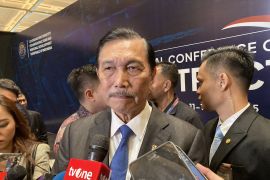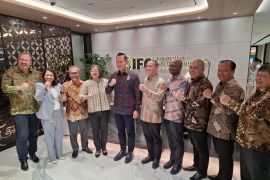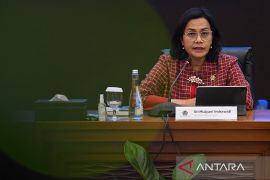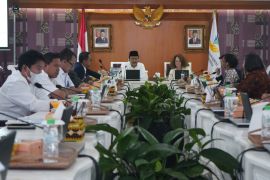Falling interest in investment is one of the factor slowing down the countrys economic growth, World Bank chief representative in Indonesia Rodrigo Chaves said in the banks quarterly report issued here on Monday.
Rodrigo said the countrys investment grew only 4.5 percent in the third quarter of 2013, adding there was less interest especially in heavy equipment and machinery industry.
In addition the Feds plan to trim its financial stimulus could cause instability in capital market hampering Indonesias access to external funding, he said.
"Domestic consumption, which has been the main driver of the countrys economic growth, is feared to weaken. The financial projection also looks volatile as a result of oil fuel subsidy burden," he said.
He said the Indonesian government has taken a series of steps to strengthen short term macro economic stability notably through adjustments of monetary policy and rupiah exchange value.
However, what the country needs in order to promoted trade and to boost long term growth is wider structural reform, he said.
"Indonesia has gone through years full of challenges marked with shrinking exports and falling commodity prices as well as turbulence in capital market and difficulty in securing external funds. However, monetary policy has supported economic adjustments," he said.
He said Indonesia would gain if the government focuses more on long tern investment as the country needs more investment to be not entirely dependent on monetary policy.
"Steps toward improving business climate is very important to draw investment. Simplification in logistics and trade regulations would also contribute to boosting exports," he added.
In the latest quarterly report the World Bank predicted the countrys current account deficit would be narrowed from an estimated 3.5 percent of the countrys GDP of around US$31 billion in 2013 to 2.6 percent of the GDP of US$23 billion in 2014 on shrinking growth of imports and moderate growth of exports.
However, Rodrigo said in long term, what is needed in order to deal with current account deficit is not by slashing imports.
"What the country needs is to boost export and secure the availability of external funds mainly through foreign direct investment (FDI)," he added.
(H-ASG/O001)
Editor: Jafar M Sidik
Copyright © ANTARA 2013

